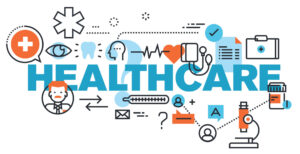Congress recently passed the Consolidated Appropriations Act, 2018, H.R. 1625, which is a $1.3 trillion spending bill. The Act contains a few tax-related provisions, including funding for the Internal Revenue Service as well as a few technical corrections to various recent pieces of tax legislation.
Importantly, the bill also amends the centralized partnership audit regime and changes the Sec. 199A deduction for farmers who sell grain to agricultural cooperatives.
The bill passed the House of Representatives by a 256–167 vote. It passed the Senate by a 65–32 vote. President Donald Trump signed the bill into law on March 30.
Internal Revenue Service Funding
The bill appropriates more than $11 billion to the IRS for taxpayer services activities and general operations.
The bill provides an appropriation of $2.5 billion to the IRS for taxpayer services (compared with $2.2 billion last year). Of that amount, $9.9 million is earmarked for the Tax Counseling for the Elderly Program, $12 million for low-income taxpayer clinic grants, $15 million for Volunteer Income Tax Assistance matching grants, and $206 million for the Taxpayer Advocate Service. Of the money designated for the Taxpayer Advocate Service, $5.5 million is earmarked for identity theft casework.
The bill also appropriates $4.9 billion for IRS enforcement activities (similar to last year), of which $60 million is earmarked for the Interagency Crime and Drug Enforcement program.
The Internal Revenue Service also gets $3.6 billion for its operations (similar to last year).
For business systems modernization, the Agency gets $110 million (a cut from last year’s $290 million). The bill directs the IRS to make improvements to its 1-800 help line a priority and to allocate resources to improve its response time when communicating with taxpayers, “particularly with regard to victims of tax-related crimes.”
The bill also makes $320 million available to the IRS for carrying out changes made by P.L. 115-97, last year’s tax overhaul legislation, but the Agency must submit to the House and Senate appropriations committees a spending plan for those funds before it can spend them.
Low-income Housing Credit
The bill amends the low-income housing credit by adding an average income test to the Internal Revenue Code requirements.
Technical Corrections
The bill makes a variety of technical corrections relating to several recent tax acts, but generally not including last year’s tax reform act, P.L. 115-97, the Tax Cuts and Jobs Act. The bill does amend Section 199A (the Qualified Business Deduction, generally applicable to pass through business entities) to change the incentive that section gave farmers to sell grain to agricultural cooperatives. Under the amendment, the Section 199A deduction for such sales is reduced to 9% (instead of 20%).
The bill also makes changes to the new centralized partnership audit regime.
The bill also introduces a method for determining partnerships’ imputed underpayments. This generally involves netting all partnership adjustments for the reviewed year and applying the highest individual or corporate tax rate in effect for that year.
New rules are introduced for the treatment of pass-through partners in tiered structures, including a requirement that such partners file a partnership adjustment tracking report with the IRS if they receive a statement from the IRS.
Should you have questions specific to this legislation, please contact Bob Grossman or Don Johnston.






